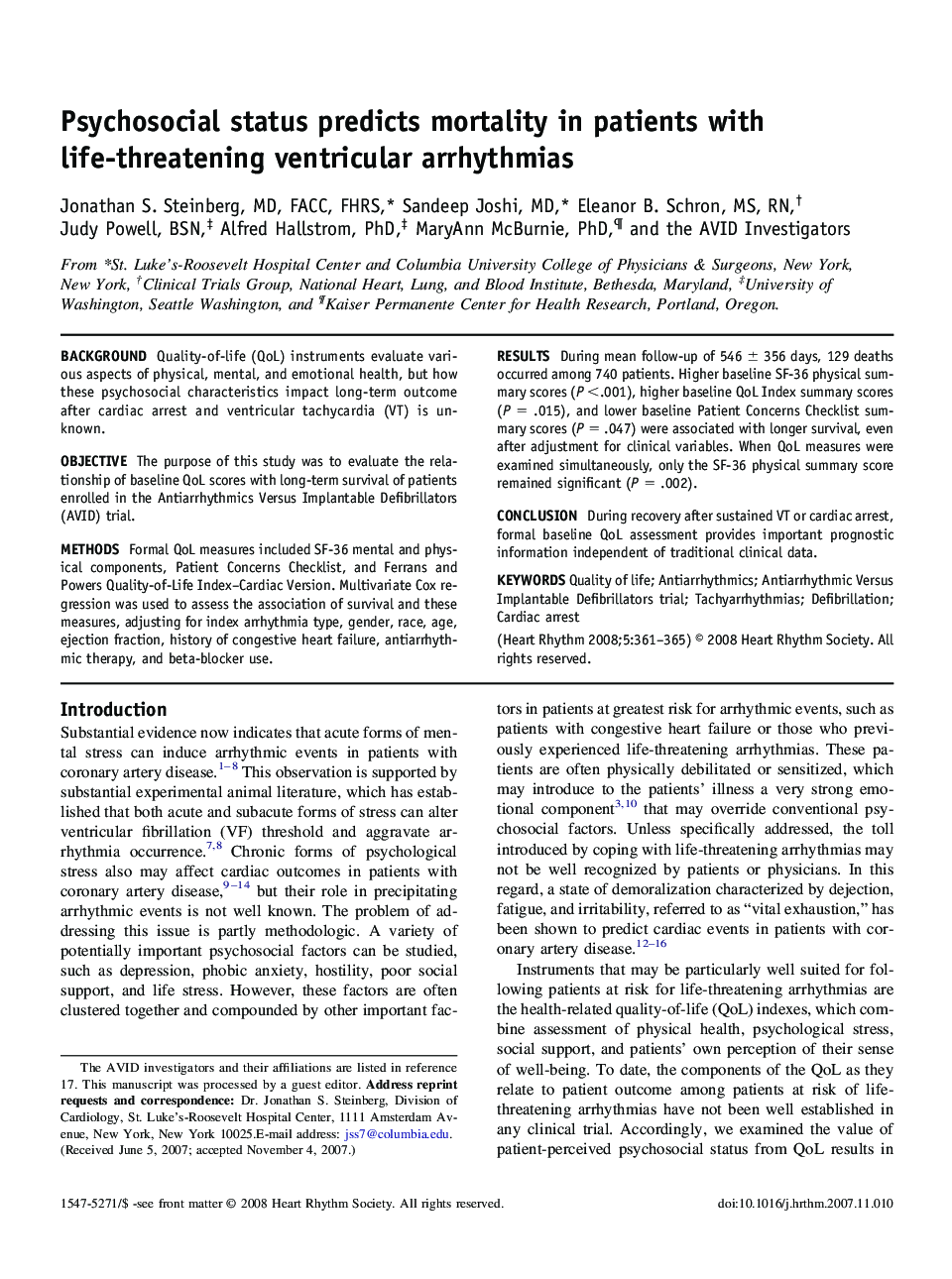| Article ID | Journal | Published Year | Pages | File Type |
|---|---|---|---|---|
| 2924394 | Heart Rhythm | 2008 | 5 Pages |
BackgroundQuality-of-life (QoL) instruments evaluate various aspects of physical, mental, and emotional health, but how these psychosocial characteristics impact long-term outcome after cardiac arrest and ventricular tachycardia (VT) is unknown.ObjectiveThe purpose of this study was to evaluate the relationship of baseline QoL scores with long-term survival of patients enrolled in the Antiarrhythmics Versus Implantable Defibrillators (AVID) trial.MethodsFormal QoL measures included SF-36 mental and physical components, Patient Concerns Checklist, and Ferrans and Powers Quality-of-Life Index–Cardiac Version. Multivariate Cox regression was used to assess the association of survival and these measures, adjusting for index arrhythmia type, gender, race, age, ejection fraction, history of congestive heart failure, antiarrhythmic therapy, and beta-blocker use.ResultsDuring mean follow-up of 546 ± 356 days, 129 deaths occurred among 740 patients. Higher baseline SF-36 physical summary scores (P <.001), higher baseline QoL Index summary scores (P = .015), and lower baseline Patient Concerns Checklist summary scores (P = .047) were associated with longer survival, even after adjustment for clinical variables. When QoL measures were examined simultaneously, only the SF-36 physical summary score remained significant (P = .002).ConclusionDuring recovery after sustained VT or cardiac arrest, formal baseline QoL assessment provides important prognostic information independent of traditional clinical data.
